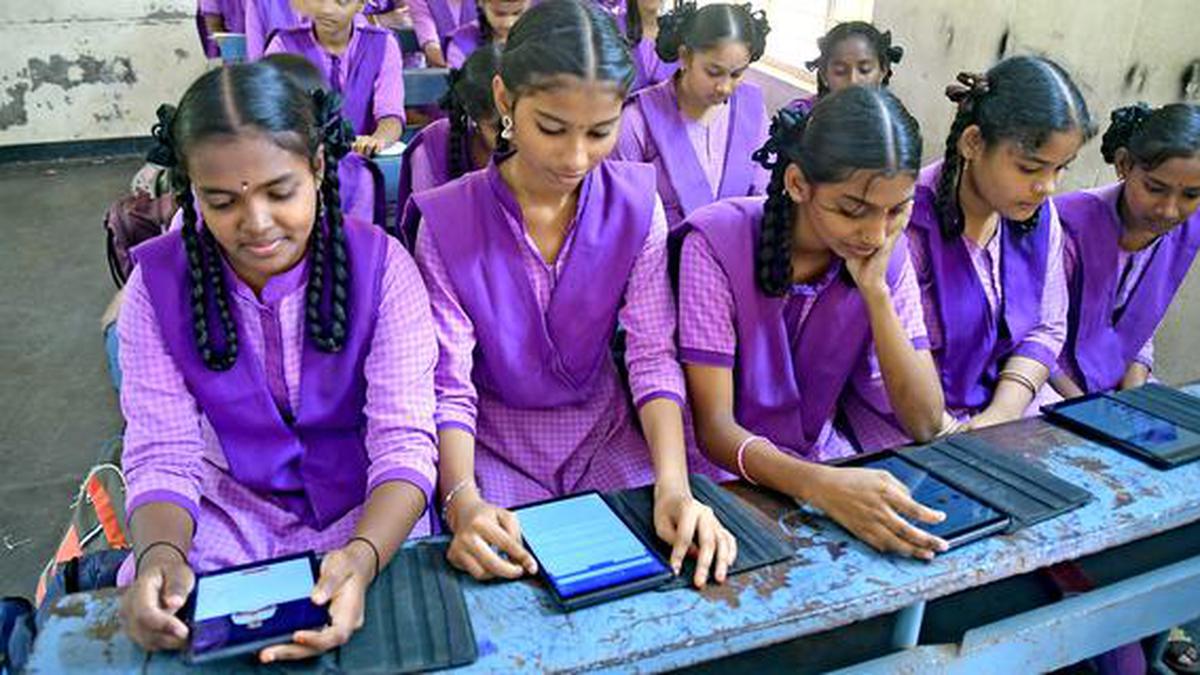
The problem of a primary deficit
The Hindu
KBC ZP High School in Vijayawada, Andhra Pradesh, has transformed education through digital classrooms and infrastructure upgrades.
Just off the main road and through an iron gate, lies the vibrant world of Koneru Basavaiah Chowdary Zilla Parishad (KBC ZP) High School at Patamata, a sub-locality of Vijayawada, Andhra Pradesh. A sprawling playground is flanked by a pathway leading to a sturdy three-storey building. The laughter of playing children blends with the chatter of girls outside classrooms named in honour of generous donors.
M. Sita Reddy, School Assistant Physical Science (SAPS) teacher, draws the attention of students to the day’s lesson plan — kinetic energy — as he turns to the interactive flat panel (IFP) mounted on the wall. He seamlessly integrates educational software, creating an engaging session for ninth graders.
“Technology is a very effective tool. Irrespective of location, culture, and background, children are the same. What drives them is the curiosity to know,” says school headmaster K.A. Prem Sagar, explaining how the digital classroom has transformed education, making it immersive and interactive for students.
“The digital board is the highlight of this academic year. We are able to understand our lessons better now. Even if there is a doubt, it gets cleared when we re-read it on our tabs that has classroom lesson content installed on it,” says U. Rohitha, a student of Class IX at the school. and resident of Sanathnagar in Vijayawada.
Gaining access to electronic gadgets was a dream for her, considering her parents’ financial situation — her father is a daily wage labourer while her mother works as a domestic help. “But my school has given me a device that helps me stay up to date with the lessons,” she adds, as her classmates T. Kusuma Priya and Md. Jafar nod in agreement.
This ZP high school is among the 15,715 schools identified in the State for a facelift in the first phase of the Mana Badi - Nadu-Nedu (Our School - Then and Now), launched by the A.P. government in 2019 to transform government schools into vibrant and competitive institutions.
Despite the ambitious efforts to propel government schools into a future job market, the substantial task of modernising all 44,512 State-run schools in Andhra Pradesh has faced its share of challenges. Launched on November 14, 2019, by Chief Minister Y.S. Jagan Mohan Reddy, the comprehensive programme, estimated to cost ₹12,000 crore, aimed at not only upgrading infrastructure but also enhancing the skills of students over three phases.













